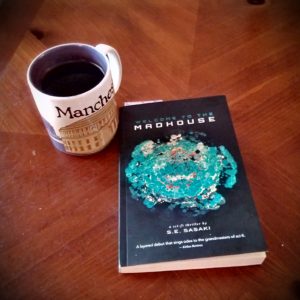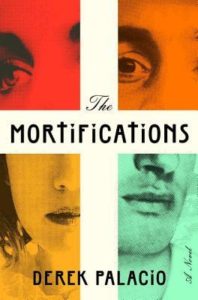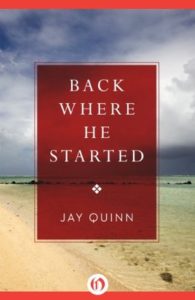 I won a copy of S.E. Sasaki‘s Welcome to the Madhouse through Goodreads. The ebook was also free at the author’s website and Amazon at the time of posting.
I won a copy of S.E. Sasaki‘s Welcome to the Madhouse through Goodreads. The ebook was also free at the author’s website and Amazon at the time of posting.
Description from Goodreads:
Doctor Grace Lord, a lieutenant in the Conglomerate Medical Corps, has come to the medical space station, the Nelson Mandela, as the new surgical fellow under the renowned Doctor Hiro Al-Fadi. Though she earned her commission as a combat surgeon in the field, she is unprepared for the scope and pace of what awaits her in the Conglomerate’s Premier Medical Space Station. The countless cryopods that come into the Nelson Mandela are filled with the casualties of the Conglomerate’s animal-adapted military forces. Traumatically injured and disfigured in campaigns spread across the galaxy, it is up to the staff of the Nelson Mandela to patch up the wounded combat soldiers for redeployment. For Grace, it is a trial by fire, as she familiarizes herself not only with the routines and protocols of life on the Nelson Mandela, but also with the eclectic community of professionals with whom she works – not the least of which is an android that has taken an almost human interest in her. When disaster strikes the space station, the Nelson Mandela must race against time to stave off annihilation, and it becomes clear that, regardless of the outcome, nothing will never be the same again.
Review:
Going into this book, I didn’t expect it to be a comedy. The humor was a pleasant surprise. At times it reached a little too far and came across as trying too hard to be funny, but it usually managed to walk the line and I enjoyed it.
I liked all the characters too, Bud especially. The back and forwards banter between the surgeons was amusing and was nicely balanced with the obvious affection the characters had for one another. Grace was a little too perfect in all ways, but I managed to look over her lack of faults.
However, I thought the whole plot-line with the closest thing to a villain the book has was unnecessary, distasteful, distracting, and predictable. It was painfully obvious who they were from the first moment they were introduced. Their character lacked depth, was evil just because they were evil and their plot arc didn’t tie well into the primary plot-line. In fact, it had nothing to do with it and was an unappreciated distraction that was wrapped up too quickly and easily to fee satisfying in any way.
Further, I felt the introduction of inferred rape and mental abuse (described as easy, at that) was unnecessary and detracted from my enjoyment of the book. I am so sick of victimized women as plot-points that I almost just gave up on the book after reading the prologue. I was pleased the subject didn’t come up again. I understand that this particular plot-point probably just set up the sequel, but I REALLY wish this book had done without it. In fact, it reads like it did and the author went back and added it just for book two.
The writing/editing was unusually good for an indie. I did think some of the dialogue was on the stiff side, even when allowing for android-speak and there was an excess of exclamation marks. But I was mostly pleased.
All in all, however, I enjoyed the book. I laughed and was interested enough to read until the end. I’d happily read book two to see how Bud progresses.
What I’m drinking: Bentley’s Oolong tea.


 I received a copy of
I received a copy of  I downloaded a free copy of
I downloaded a free copy of